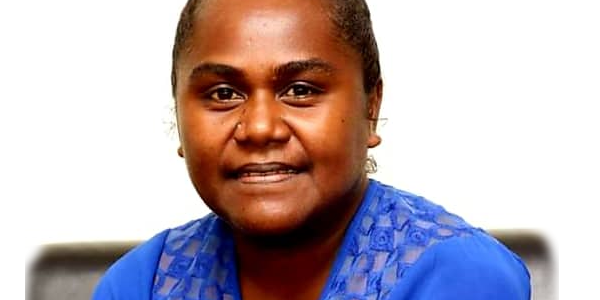MEMBER of Parliament for Gizo Kolombangara and Minister of the Ministry of Education and Human Resource Development (MEHRD) says enough is enough and it is time to learn from the experiences of the ethnic crisis and move on.
Lanelle Tanangada uttered these remarks in parliament last week when contributing to the debate on the Truth and Reconciliation (TRC) Commission Report.
She said the TRC Report provides an account of the possible causes of the ethnic conflict between 1997 and 2003.
“The TRC Report provides rich information about what happened to our people: girls and boys, men and women who suffered the most horrifying experiences in their life-time.
“The TRC report provides scores of acts of violence, cruelty, intimidation of civilians, unspeakable outrage by ordinary peace-loving Solomon Islanders who distaste violence and conflict, civil disobedience by militants and sympathisers who caused acts of evil such as the rape of girls and women, murder and massacre.
“The report unearthed by the TRC is indeed sensitive and controversial, but accurate and demonstrates the truth about what happened to those that were severely affected during the height of the conflict.
“The stories told by the victims of the tension, observers, sympathisers have formed the basis for healing our people and our nation,” Minister Tanangada said.
She told Parliament of her experience when reading through the report.
“To be honest, the first time I got hold of this shorter version of the report, I only read the first page and I closed the book.
“It took me a while to go back to the report. That speaks of a past that we do not want to reexperience in the future,” he said.
Because of that, Minister Tanangada said it is time to move on and find ways to help rebuild the country by peace-building.
“Enough is enough. It is time to move on. Move on with this significant question, what can I do for my loved country Solomon Islands?
“The recommendations of the report were meant to implement activities, projects and programmes to strengthen national unity and reconciliation by engaging all key stakeholders in the reconciliation process.
“The question is; how can we tell if we are on track in terms of the implementation of the TRC Report Recommendations? Are we there yet? What else can we do to sustain our peace-building efforts?
“Putting the question in another way; how far have we gone into addressing the inequitable distribution of development benefits? which is believed to be one of the main causes of the conflict.
“Likewise, how can we teach our children, students, and young people to become peace-loving citizens, responsible citizens, who value living together in co-existence with one another and their environment.”
She saluted the efforts by successive political governments and the current Democratic Coalition Government for Advancement (DCGA) to address some of the disparities in development so that the provinces that have not benefited in the past could be considered and supported this time around.
By MOFFAT MAMU









